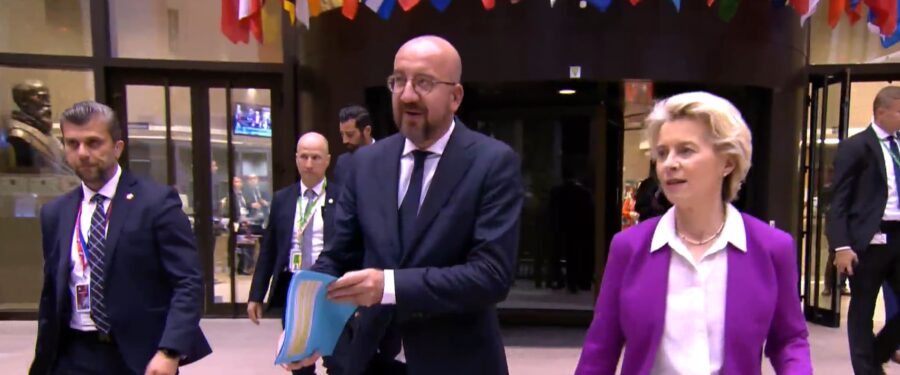After rounds of wrangling, European Union (EU) leaders agreed to a partial ban on Russian oil imports into the bloc in an attempt to squeeze Russia’s finances over its invasion of Ukraine.
The 27 countries of the EU agreed during a summit in Brussels late Monday to reduce imports of Russian oil by 90 percent by the end of this year, in a decision that seeks to deprive Moscow of “a huge source of funding” for its war on Ukraine.
European Council President Charles Michel said that EU leaders agreed during the summit to impose a gradual ban on imports of oil exported by Russia by ship, and at the same time agreed to grant a temporary exemption for oil transported through pipelines, in order to satisfy Hungary, which threatened to veto this sixth package of European sanctions against Russia.
Michel said in a tweet on Twitter that this reduction “will deprive the (Russian) war machine of a huge source of funding” and will put “maximum pressure” on Moscow to push it to stop its war on its neighbor.
Berlin and Warsaw pledged to stop their imports of Russian oil through the Druzhba pipeline, raising to 90 percent of the amount of Russian oil exports that the EU will abandon by the end of the year, European Commission President Ursula von der Leyen and French President Emmanuel Macron announced.
Macron, whose country holds the rotating presidency of the Council of the EU, said that the bloc would consider “as soon as possible” extending the scope of this embargo to include oil exported by Russia through pipelines to member states of the bloc.
Expectations indicate that Russian President Vladimir Putin will lose about $10 billion annually in oil export revenues with the EU imposing a ban on shipments, according to Bloomberg estimates. This is due to the fact that Russia will be forced to sell its crude at a price reduction to countries of the Asian region, as it is actually trading at a price that is about $34 per barrel lower than the price of Brent crude futures contracts.
Hungary’s approval is required
It is noteworthy that Hungary is a country that, because it does not have any seaports, depends on the Druzhba pipeline to import Russian oil. This line passes through Ukraine and supplies Hungary with 65 percent of its oil needs.
European sanctions are issued unanimously, and therefore Hungary’s approval was necessary to issue this sixth package against Russia.
For the approval of these sanctions, Budapest stipulated that it obtain guarantees in the field of its energy security.
At dawn on Tuesday, the President of the European Commission considered that the Adria pipeline, which supplies oil to Hungary via Croatia, could be increased in capacity within “about 40 to 60 days” and through “investments” whose value has not been determined.
On the financial front, the 27 member states of the Union agreed to exclude three Russian banks from the SWIFT system for international money transfers, including Sberbank, the largest bank in Russia.








